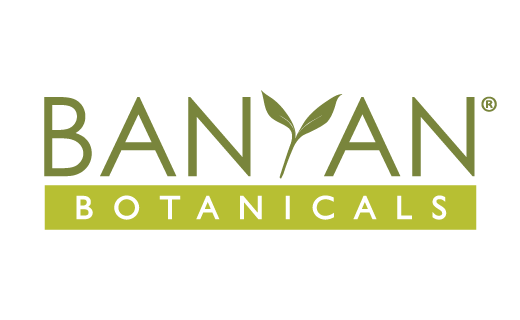

Banyan Botanicals

Oregon, United States
May 2019
Personal care products
Manufacturing
United States
Banyan Botanicals was born in 1996 out of a love for the deep wisdom of Ayurveda. Their mission is to help people achieve and maintain optimal health and well-being. They fulfill their mission by: -Empowering individuals to take personal responsibility for their physical, mental, and spiritual health through the wisdom of Ayurveda -Producing the highest quality Ayurvedic health products using certified organic herbs that are sustainably sourced and fairly traded -Educating, inspiring, and motivating their customers by creating high quality, educational content They offer an extensive line of organic Ayurvedic health products including herbal supplements, massage oils, powdered herbs, liquid extracts, and meal ingredients. As the company continues to grow, so does their commitment to creating positive social and environmental change. This is demonstrated by programs such as their Community Grant Fund, which supports people and projects that are making Ayurveda more accessible to all, and their support of projects like the FairWild Initiative, which provides sustainable growing and harvesting practices along with fair wages to farmers. As a Certified B Corporation, Banyan Botanicals is proud to be joining a community of like-minded socially responsible companies.
Overall B Impact Score
Governance 15.8
Governance evaluates a company's overall mission, engagement around its social/environmental impact, ethics, and transparency. This section also evaluates the ability of a company to protect their mission and formally consider stakeholders in decision making through their corporate structure (e.g. benefit corporation) or corporate governing documents.
What is this? A company with an Impact Business Model is intentionally designed to create a specific positive outcome for one of its stakeholders - such as workers, community, environment, or customers.
Workers 22.8
Workers evaluates a company’s contributions to its employees’ financial security, health & safety, wellness, career development, and engagement & satisfaction. In addition, this section recognizes business models designed to benefit workers, such as companies that are at least 40% owned by non-executive employees and those that have workforce development programs to support individuals with barriers to employment.
Community 35.4
Community evaluates a company’s engagement with and impact on the communities in which it operates, hires from, and sources from. Topics include diversity, equity & inclusion, economic impact, civic engagement, charitable giving, and supply chain management. In addition, this section recognizes business models that are designed to address specific community-oriented problems, such as poverty alleviation through fair trade sourcing or distribution via microenterprises, producer cooperative models, locally focused economic development, and formal charitable giving commitments.
What is this? A company with an Impact Business Model is intentionally designed to create a specific positive outcome for one of its stakeholders - such as workers, community, environment, or customers.
Environment 29.6
Environment evaluates a company’s overall environmental management practices as well as its impact on the air, climate, water, land, and biodiversity. This includes the direct impact of a company’s operations and, when applicable its supply chain and distribution channels. This section also recognizes companies with environmentally innovative production processes and those that sell products or services that have a positive environmental impact. Some examples might include products and services that create renewable energy, reduce consumption or waste, conserve land or wildlife, provide less toxic alternatives to the market, or educate people about environmental problems.
What is this? A company with an Impact Business Model is intentionally designed to create a specific positive outcome for one of its stakeholders - such as workers, community, environment, or customers.
Customers 4.1
Customers evaluates a company’s stewardship of its customers through the quality of its products and services, ethical marketing, data privacy and security, and feedback channels. In addition, this section recognizes products or services that are designed to address a particular social problem for or through its customers, such as health or educational products, arts & media products, serving underserved customers/clients, and services that improve the social impact of other businesses or organizations.